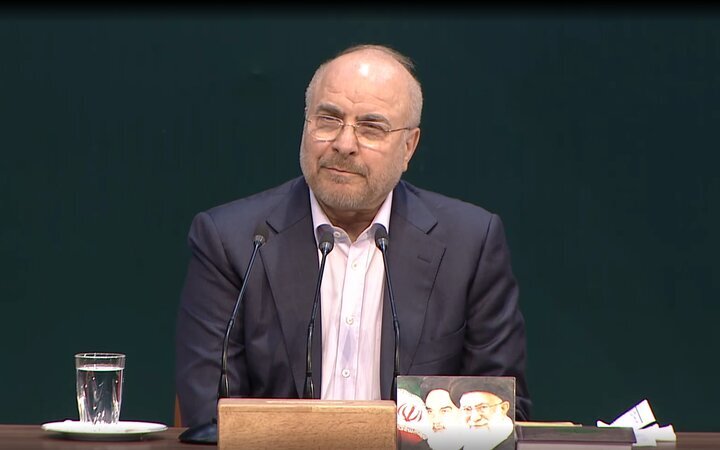TEHRAN – The Speaker of Iran’s Parliament, Mohammad Baqer Qalibaf, has underscored the necessity of strengthening Iran’s strategic partnership with China, characterizing the Asian superpower as a key ally with whom Iran shares mutual interests and goals.
Speaking at a press conference on Wednesday, Qalibaf elaborated on the enduring significance of Iran-China relations and their broad potential for expansion in economic, political, and security domains.
“China stands among our closest allies, with whom we share deep strategic ties rooted in common interests and mutual challenges,” Qalibaf stated.
He emphasized the importance of leveraging opportunities offered by international frameworks such as BRICS, the Shanghai Cooperation Organization, and Eurasian economic initiatives to further strengthen this partnership.
“To address regional and global challenges effectively, we need to build a robust foundation for our bilateral relationship and take it to new heights,” he added.
‘Iran supports Lebanon’s ceasefire’
Shifting focus to West Asia, Qalibaf welcomed the recently established ceasefire in Lebanon, expressing gratitude for the respite it provides to the Lebanese people after weeks of Israeli bombardment.
“We are thankful that the people of Lebanon can finally experience a peaceful night, free from the oppression and brutality of the Zionist regime,” he said.
Qalibaf also praised the valor of Hezbollah fighters, commending their resistance against Israeli aggression and their steadfastness in defending Lebanese sovereignty.
He called for similar peace initiatives in Gaza, reiterating Iran’s unwavering commitment to supporting Islamic nations and the Resistance Front as key pillars of its foreign policy.
‘Netanyahu’s claim of focusing on Iran is mere rhetoric’
Addressing recent threats from Israeli Prime Minister Benjamin Netanyahu, Qalibaf dismissed them as unfounded posturing, citing Israel’s repeated failures in Lebanon.
“Netanyahu’s claim of focusing on Iran is mere rhetoric. During the war in Lebanon, Israel believed Hezbollah was weakened, yet history proved otherwise. Even with seven divisions deployed to southern Lebanon, Israel could not achieve its objectives,” he said.
Recalling his previous visit to Beirut during the aftermath of conflict, Qalibaf reflected on the resilience and creativity of the Lebanese people.
“I saw the determination of a nation rebuilding amidst devastation. Hezbollah remains more alive and resolute than ever,” he declared.
Qalibaf also highlighted recent rocket strikes on Tel Aviv by Hamas, describing them as a testament to the enduring strength of the resistance. He hinted at future strategic responses by Iran, referring to “Promise of Truth 3” as a planned operation to be executed at the appropriate time.
‘Iran’s approach to negotiations depends on Washington’s actions’
When questioned about potential future negotiations between Iran and the United States, Qalibaf emphasized that Iran’s approach would depend on concrete actions from Washington.
“The current U.S. administration is different from the last, but we cannot forget that it assassinated General Soleimani. For over a decade, their policies have consistently opposed the Iranian nation. We will reserve judgment until we see tangible changes in their behavior,” he stated.
‘Netanyahu’s policies ensnared Israel in a quagmire’
Qalibaf concluded his remarks by criticizing Netanyahu’s regional policies, describing them as failures that have ensnared Israel in a “quagmire.” He urged the new U.S. administration to avoid repeating these mistakes. “Netanyahu’s strategies have destabilized the region, creating a swamp that the U.S. must not wade into. Stability and peace can only be achieved through recognizing the legitimate rights of oppressed nations,” he asserted.


No comments:
Post a Comment